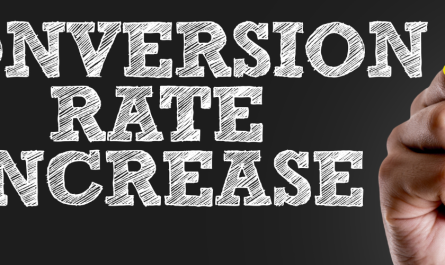Why Is This Topic Important?
In a highly competitive digital world, standing out in search results is crucial for businesses. Schema markup helps websites provide search engines with additional context, improving visibility through rich snippets, knowledge panels, and other enhanced search result features. Whether you’re an SEO enthusiast, a business owner, or part of a creative agency in India, understanding schema markup can give your website a significant SEO edge.
What Is Schema Markup?
Schema markup is a structured data vocabulary that helps search engines understand the content on your webpage better. By implementing schema, websites can enhance their search result listings with features like:
- Rich snippets (reviews, ratings, images, prices)
- Knowledge graphs (brand details, FAQs, business info)
- Breadcrumbs for better navigation
Benefits of Schema Markup for SEO
1. Enhances Search Engine Visibility
Schema markup allows search engines to present your content in a more engaging and informative way, increasing your website’s chances of getting clicked.
2. Improves Click-Through Rates (CTR)
Rich snippets, reviews, and event details make search results more visually appealing, encouraging users to click.
3. Boosts Local SEO
For businesses, especially an integrated marketing agency, local schema markup can help display business locations, working hours, and customer reviews prominently.
4. Increases Content Relevance
Schema markup helps search engines categorize and present content in a way that aligns with user intent, making it easier to connect with the right audience.
How to Implement Schema Markup?
Step 1: Identify the Right Schema Type
Depending on your content, choose the appropriate schema type. Some common types include:
- Organization Schema (for businesses and brands)
- Product Schema (for e-commerce sites)
- Event Schema (for webinars, concerts, and conferences)
- Article Schema (for blogs and news sites)
Step 2: Use Google’s Structured Data Markup Helper
Google provides an easy-to-use tool to help generate schema markup. Simply:
- Visit Google’s Structured Data Markup Helper.
- Select the content type (e.g., Articles, Events, Local Businesses).
- Enter your webpage URL and start tagging elements like title, author, and date.
Step 3: Generate and Add JSON-LD Code
Once the tagging is complete, the tool will generate a JSON-LD (JavaScript Object Notation for Linked Data) script. Add this script inside the <head> section of your webpage.
Step 4: Validate Your Markup
Before deploying, validate your schema using Google’s Rich Results Test or Schema Markup Validator to ensure there are no errors.
Schema Markup Best Practices
- Keep the Data Accurate: Ensure the structured data reflects the actual content on your page.
- Use JSON-LD Format: Google prefers JSON-LD over Microdata and RDFa.
- Update Schema Regularly: Review your markup periodically to align with SEO trends and algorithm updates.
- Test Before Publishing: Always validate before applying to live pages to avoid indexing errors.
Real-World Applications of Schema Markup
1. E-commerce Websites
An online store selling products can use schema markup for prices, availability, and user reviews, making search results more informative.
2. Marketing Agencies
A marketing agency can use Organization Schema to highlight services, location, and social media links.
3. Local Businesses
Local businesses, including an integrated marketing agency, can enhance their Google My Business profile with LocalBusiness Schema.
The Future of Schema Markup
As AI-driven search and voice search continue to evolve, structured data will play an even greater role in SEO. Future trends include:
- Voice Search Optimization: Schema helps search engines extract relevant content for voice queries.
- AI-Driven Search Results: Google’s algorithms will continue to favor well-structured content.
- Expanded Rich Snippet Features: More interactive elements in search results will improve user engagement.
Conclusion
Implementing schema markup is a powerful SEO strategy that enhances search results, boosts engagement, and improves CTR. Whether you’re working at a creative agency in India or managing your own blog, structured data ensures your content stands out.
Does this interest you? Connect with us to see how we can help you!
Trending FAQs
- What is schema markup in SEO? Schema markup is a structured data vocabulary that helps search engines understand webpage content better.
- How does schema markup improve search rankings? While schema itself isn’t a ranking factor, it enhances visibility and CTR, indirectly boosting rankings.
- Which schema type should I use for my business? LocalBusiness Schema is ideal for local businesses, while Organization Schema suits companies and agencies.
- Is schema markup necessary for all websites? While not mandatory, it significantly improves search result appearance and user engagement.
- How do I add schema markup to WordPress? You can use SEO plugins like Rank Math or Yoast SEO to generate and add structured data easily.
- Can schema markup help with voice search? Yes, schema enhances content clarity, making it more suitable for voice search results.
- Does Google penalize incorrect schema markup? Incorrect or misleading schema markup may result in manual actions or removal of rich results.
- How often should I update schema markup? Regular updates ensure compliance with Google’s latest guidelines and algorithm changes.
- What tools can I use to validate schema markup? Google’s Rich Results Test and Schema Markup Validator are reliable tools for testing structured data.
How long does it take for schema markup to show in search results? It varies but can take a few days to weeks depending on Google’s crawling and indexing.
Some of the services that Clevertize provides are:
Creative Services, Performance & Digital Media Marketing, Visual Identity & Branding, Campaign Management & Analysis, UI/UX & Website design, Video creation, Media planning & buying, Chatbot & more.
If Return on Investment is critical for you, talk to Clevertize!
Reach out to us at saumya@clevertize.com!





